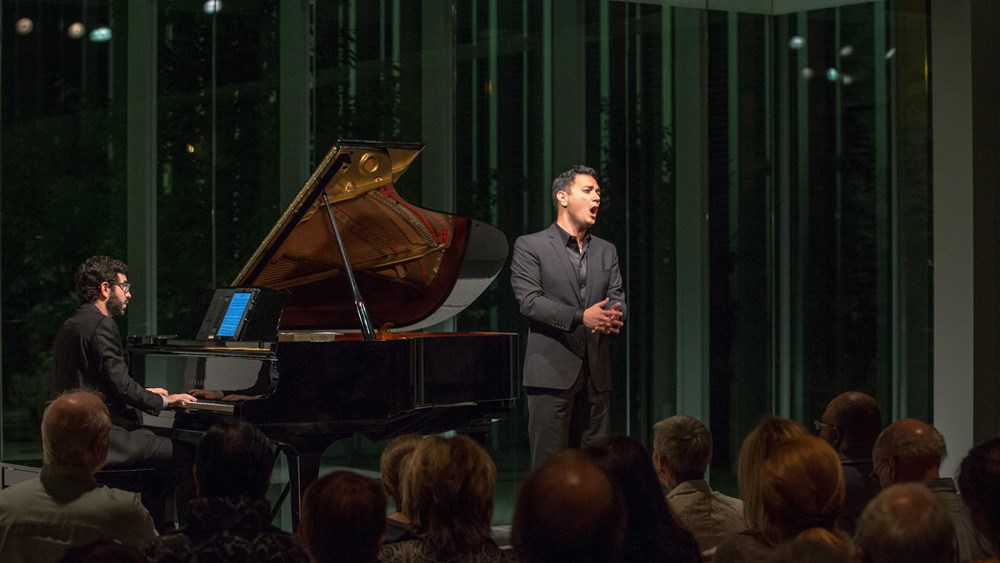A “Silent Minority” Speaks Up

When tenor Nicholas Phan competed in the BBC Cardiff Singer of the World competition in 2003, participants were directed to present a “song of their country.” For Phan, an American of Chinese and Greek descent, the edict posed a dilemma. “I was immediately drawn to offerings like ‘Shenandoah’ or ‘Simple Gifts,’ but I didn’t feel comfortable doing them,” he says. “In hindsight, it was because I didn’t feel white enough to sing those songs. It drove home the sense that I am an American, but I don’t necessarily feel very American.” Phan eventually chose to steer away from traditional American music and sing “Litany” from John Musto’s cycle Shadow of the Blues.
The Asian American experience in opera has long been a silent one. The spate of anti-Asian violence that has recently plagued our nation, though, is motivating action that is bringing the concerns of the field’s Asians and Asian Americans to the forefront. This spring, a group of Asian-identifying professionals founded the Asian Opera Alliance, modeled on the Black Opera Alliance that formed last year in the wake of George Floyd’s murder. The organization seeks to address the dearth of Asian representation in the opera industry and the field’s systemic neglect of Asians and people of Asian descent.
Asian characters and settings permeate the operatic canon, but few Asians or Asian Americans have a voice in their presentation. The ideas that opera perpetuates about the Asian community further ingrain biases that exist in many aspects of our culture. “Looking at this repertory, I only see certain narratives about Asian people,” says Phil Chan, co-founder of Final Bow for Yellowface, an organization dedicated to fighting Orientalist stereotypes in the arts. Asian Americans within the opera world hope that social justice that gained traction during the pandemic will shift how Asianness is presented in opera and how Asian people are represented on and offstage.
Asian singers are not looked at with the same breadth of possibility and imagination as their white counterparts. As in film, television, and theater, Asian performers are rarely front and center. “For white audiences, particularly here in America, it’s taken a while to accept an Asian tenor in a lead role,” says Grace Row, digital media production specialist at the Metropolitan Opera. Oftentimes, conversations surrounding casting look to a limited repertoire that does not allow an Asian performer to be seen as a distinct individual. “The question becomes, ‘Who can be cast as Butterfly?’” notes Phan. “We should be asking, ‘Why is the Asian soprano we cast as Butterfly not cast more often as Mimì or the Countess? Why is the Black soprano who’s cast as Bess not also cast as Leonora?’”
These decisions are, by and large, made by white men with a gaze shaped by Western European ideals in regard to a repertoire that views non-whites through that same lens. As Chan sees it, accurate and sensitive representation of Asians in opera means “replacing Orientalism with Asian collaborators and creators.” For Gabrielle Nomura Gainor, Seattle Opera’s communications and public engagement manager, the situation calls not for banning certain works from the repertoire as much as approaching them with a new degree of cultural awareness. “I’m interested in people of color appropriating them for their own storytelling,” she says. “If you’re going to do it in a status quo, Eurocentric way, you shouldn’t lie to yourself about what that represents.”
“There’s so much tradition in opera — and so much fear of traditions being lost,” says Nicholas Phan. “Those fears hold us back from enjoying the incredible singing that is happening around us all the time, and accomplishing a true meritocracy.” The takeaway: By giving Asian and Asian Americans the power to shape the conversation, we can better appreciate the rich diversity of voices in our opera community.
AAPI Racial Justice Websites: A Curated List
A collection of websites on the history of and movement for racial justice.
This article was published in the Summer 2021 issue of Opera America Magazine.

Daniel Applebaum
Daniel Applebaum is a soloist at New York City Ballet. His writing has appeared in Opera News and Dance Magazine.




